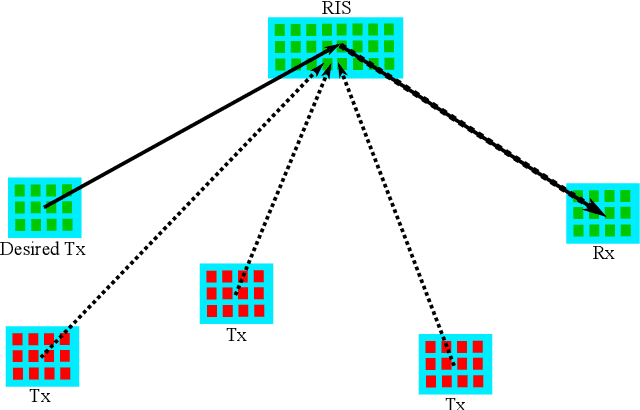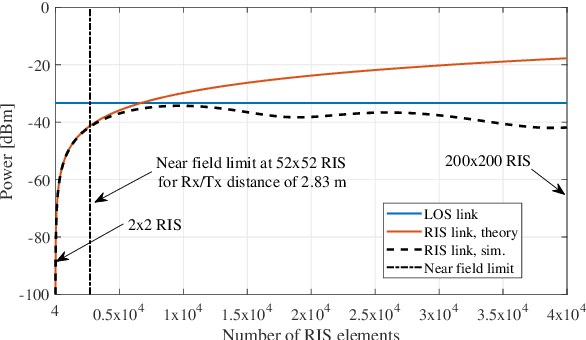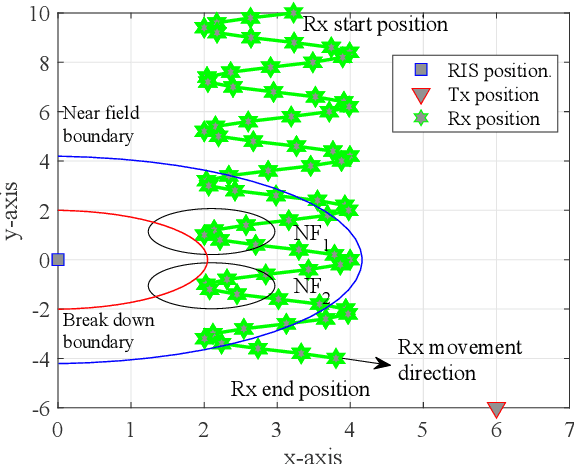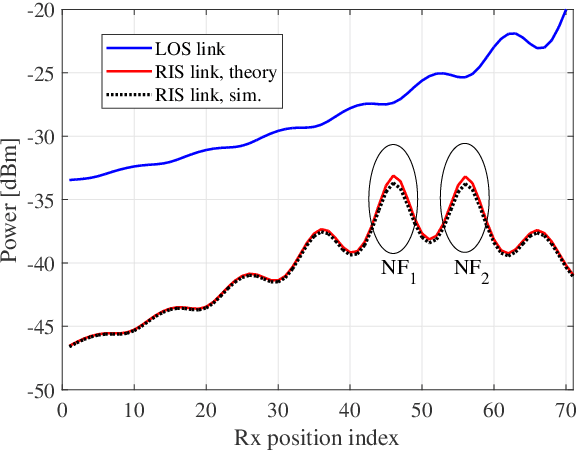Stochastic Geometry based Interference Analysis of Multiuser mmWave Networks with RIS
Paper and Code
Jul 13, 2021



In this paper, we utilize tools from stochastic geometry to estimate the interference propagation via reconfigurable intelligent surface (RIS) in the millimeter wave (mmWave, 30-300 GHz) band and specifically on the D band (110-170 GHz). The RISs have been of great interest lately to maximize the channel gains in non-line-of-sight (NLOS) communication situations. We derive expressions for stochastic interference level in RIS powered systems and validate those with simulations. It will be shown that the interference levels via RIS link are rather small compared to the designed RIS link or the LOS interference as the random interference loses significant part of the RIS gain. We also analyse the validity of far field channel and antenna gains in the near field of a large array. It is shown that, while the high frequency systems require large arrays that push the far field far away from the antenna, the far field equations are very accurate up to about half way of the near field.
 Add to Chrome
Add to Chrome Add to Firefox
Add to Firefox Add to Edge
Add to Edge